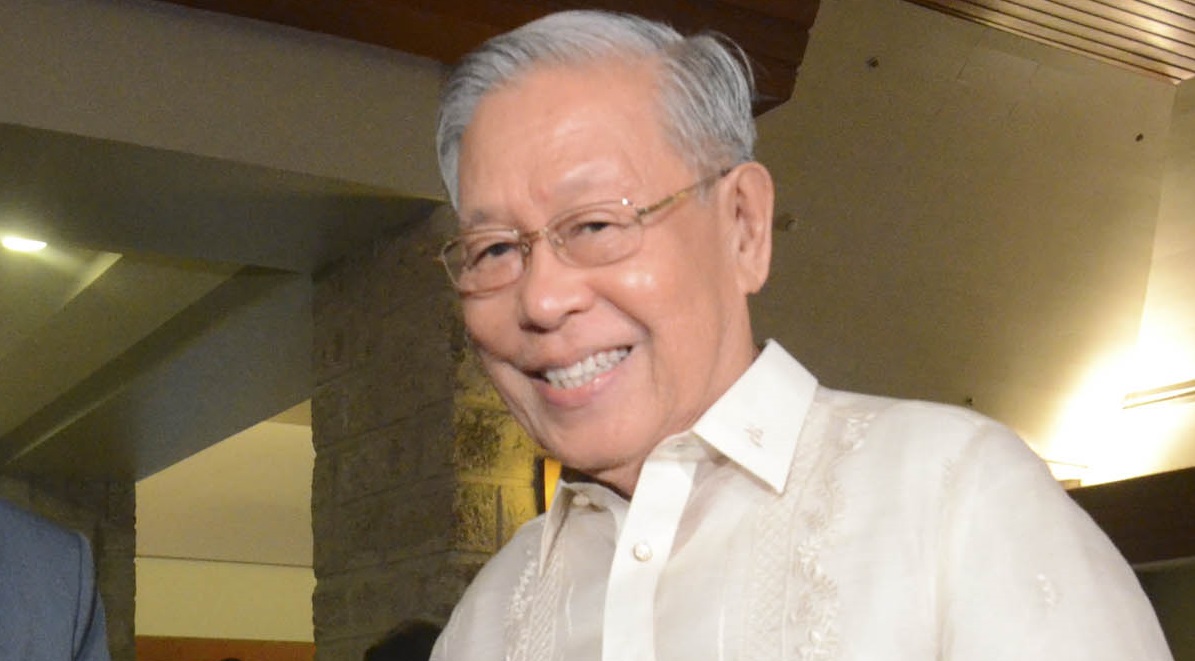Former Chief Justice Hilario Davide Jr. on Tuesday described as a “lethal experiment” and a “leap into hell” the apparent rush by Congress to amend the 1987 Constitution to pave the way for a shift in the form of government from unitary to federal.
“I assert that the shift to federalism or amendments to our Constitution to accomplish the goals and objectives of the proponents of federalism is totally unnecessary,” Davide told business executives at Manila Polo Club in Makati.
He said the reasons cited to support the move were “deceptively misleading.”
“All such goals and objectives can adequately and sufficiently be accomplished by merely but effectively and efficiently implementing the provisions of the 1987 Constitution for strong local autonomy and decentralization,” Davide said.
He said the local government units’ complaints about their share in the proceeds of the use and development of natural resources in their areas were already addressed in Article 10 of the Constitution and the Local Government Code of 1991.
Regional dev’t councils
The Constitution, according to Davide, even provides for the creation of regional development councils to accelerate socioeconomic growth in the regions.
“In brief, effective decentralization or power-sharing between the central government and the political subdivisions are already assured and mandated, not denied or impeded by the Constitution,” he said.
If there are deficiencies in the Local Government Code that hinders regional development, then Congress should just amend the law, he added.
Because natural wealth and resources are not evenly distributed geographically in the country, some of the regions under the proposed federal setup might end up poor and would have to be run by the central government, Davide said.
Social justice
Davide, a member of the Constitutional Commission that drafted the basic law in 1986, called it the “best Constitution in the world.”
He noted that Congress had yet to fully enforce provisions of the current Constitution, especially those dealing with social justice.
Congress has yet to enact enabling laws to “give life” to many unimplemented provisions of the Constitution.
He reminded government officials, whether appointed or elected, that they swore to uphold the 1987 Constitution. “Have we done enough to be true and faithful public servants under the Constitution?” he asked.
“We can work better, faster, more efficient in a unitary system,” Davide said, adding that under a rushed federal system, “democracy would be at risk.”
Bangsamoro Basic Law
The former Chief Justice advised that the proposed Bangsamoro Basic Law be passed first as it contained elements of a federal type of government for Muslim Mindanao.
If the system succeeds in Muslim Mindanao, then the federalization of the rest of the country could follow, he said.
In his talk, Davide used three major drafts being considered by Congress for the proposed constitutional amendments.
One is a draft submitted by former Sen. Aquilino Pimentel Jr. Another has been presented by the ruling Partido Demokratiko Pilipino-Lakas ng Bayan, which also includes a parliamentary form of government.
The third is embodied under proposed Joint Resolution No. 8 crafted by Pampanga Rep. Aurelio Gonzales Jr. and ABS Rep. Eugene Michael de Vera.
Davide echoed other sectors, legal experts and political pundits’ criticisms of efforts to change the form of government.
“A shift to federalism is a lethal experiment, a fatal leap, a plunge to death, a leap to hell,” he said, as he enumerated 18 of his objections to federalism.
Bloated bureaucracy
The former Chief Justice centered his objections on the “bloating” of the bureaucracy with the creation of the regional governments.
Davide said people would be made to pay more taxes to support and maintain regional governments. There would also be an increase in the number of nonelected government and civil positions.
The introduction of elected executive and legislative positions in the regions could also breed new or entrench old political dynasties as there would be “more juicy elective positions which will guarantee more fortune, fame and power to soothe politicians and their families,” he said.
Regions and its subunits might become mired in “feudalism” and end up becoming turfs of a ruling political class, Davide added, warning against the continuing “reign of the few.”
There would also be more private armies, more warlordism, more expensive elections and wider opportunities for graft and corruption with the creation of new public offices.
Judicial independence
The proposals for the shift to federalism could also affect judicial independence as there are proposals to abolish the Judicial and Bar Council, which vets and recommends nominees to positions in the Judiciary and the Office of the Ombudsman.
The proposals call for mere recommendations from the Integrated Bar of the Philippines to the Commission on Appointments, which will choose the nominees.
There would also be a massive reorganization in the judiciary with the regionalization of the Courts of Appeals and the antigraft Sandiganbayan.
The rule of law would also “suffer a lot” under the feudal lords while there would also be “disarray” in the criminal judicial system with the “unavoidable” reclassification of federal and state offenses.
